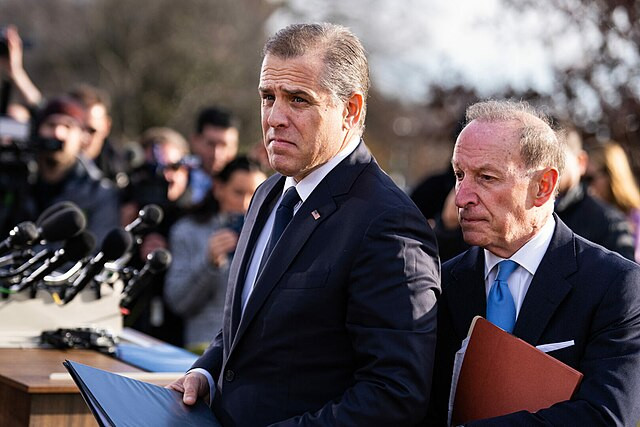In Wilmington, Delaware, jury selection commenced on Monday for the high-profile trial of Hunter Biden, the President's son, facing three felony charges related to the illegal purchase of a firearm in 2018. The trial began with a revelation that many potential jurors had personal connections to drug addiction, underscoring the pervasive impact of substance abuse in the community.
Judge Maryellen Noreika presided over the selection process, which involved over 60 potential jurors. Each was individually questioned about their ability to serve impartially, particularly given their personal experiences with addiction. By late afternoon, a jury of 12 panelists, composed of six men and six women, along with four alternates, was selected.
"This is Delaware. You can't swing a cat without hearing something about the case," remarked one potential juror, highlighting the widespread awareness of the trial within the state.
The charges against Hunter Biden stem from his 2018 purchase of a .38 revolver from StarQuest Shooters & Survival Supply in Wilmington. Prosecutors allege that Biden lied about his drug addiction on the federal form required for the purchase, ticking "No" when asked if he was an unlawful user of, or addicted to, controlled substances. Biden has pleaded not guilty to charges of false statements and illegal possession of a firearm.
Throughout the selection process, many jurors disclosed that they or their loved ones had struggled with addiction. This included accounts of family members overcoming addiction through rehabilitation, while others lamented ongoing struggles. Judge Noreika meticulously questioned each potential juror about whether these personal experiences would affect their ability to impartially assess the case.
One young woman, describing the addiction issues faced by her family and friends, noted, "It's the area. Many friends have been lost to overdoses." Another potential juror, excused for cause, expressed strong opinions on gun ownership, asserting it as a "God-given right," while another cited a negative opinion of the Bidens.
Hunter Biden, joined by his wife Melissa Cohen and sister Ashley Biden, as well as First Lady Jill Biden, was present throughout the proceedings. The first lady displayed minimal emotion, interacting primarily with family members and avoiding eye contact with the media and potential jurors. Hunter Biden was engaged with his defense team, led by attorney Abbe Lowell, throughout the day.
In addition to the drug addiction connections, some jurors disclosed that they or their family members owned firearms. Several jurors mentioned being legal concealed carry holders for self-defense, while others expressed a desire for stricter gun legislation. Those unable to commit to impartiality were dismissed from the jury pool.
Hunter Biden's trial, which resumes with opening statements on Tuesday, is set to feature FBI Special Agent Erika Jensen as the prosecution's first witness. Jensen's testimony will include text messages and images of controlled substances, along with excerpts from Biden's memoir, "Beautiful Things."
This case marks a significant chapter in Hunter Biden's legal troubles, which also include an upcoming criminal tax trial in California. Biden faces charges of evading $1.4 million in taxes, to which he has pleaded not guilty. The Delaware trial, however, will not include references to these tax charges.
The potential penalties for Hunter Biden in this federal gun case are severe, with each of the three counts carrying a maximum sentence of 25 years in prison, a $250,000 fine, and three years of supervised release.
Jury selection revealed the pervasive issue of drug addiction within the community and its potential impact on jurors' perceptions. The trial's progression will be closely watched, not only for its legal implications but also for its broader political ramifications, as it unfolds amidst a charged political atmosphere and ahead of the 2024 elections.






